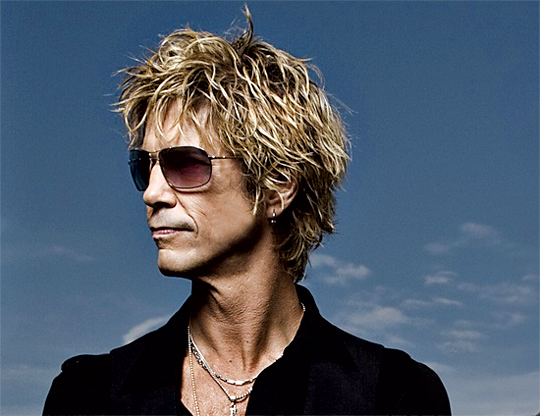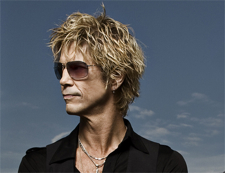Duff McKagan is the founding bassist of Guns N’ Roses and the leader of Seattle’s Loaded. His column runs every Thursday on Reverb.Yep. Here we go again into another new year. 2013 will undoubtedly have the same types of ups and downs as every year: politics, births, deaths, crime, celebration, war, recession, and economic upturn, mega-mergers, and downsizing.The only real thing that changes that we can look forward to without any real collateral damage is our arts and culture. So, here is a list for discussion of some artistic events that I have experienced as of late, or simply look forward to here in the near future.Wildhearts’ new record, via Pledge: The Wildhearts have been an English institution of sorts since sometime in the mid-80s. They had a time when they even had some success in places like Japan and Europe, but never quite made a big enough mark in the U.S. that would have cemented their commerciality as far as keeping the band a viable business venture. Record companies have shyed away from the Wildhearts as of late, and the band had almost closed-up shop. They decided to try a Pledge (PledgeMusic.com) campaign to make one last record. They asked their fans to help them raise $50,000 to make a record and market it, and instead, the Wildhearts were overwhelmed with $400,000 to their PLEDGE campaign. They have recently made 3 new records; the first to be released this April. If you love good English rock n’ roll, give the new Wildhearts a shot. It’s a great success story of a band that was down, but refused to be counted out.Django Unchained: This movie kicks ass. Jamie Foxx is the best Western superhero since Clint Eastwood. Blood, guts, racism, slavery, and redemption. Typical Tarantino…pushing everything to the limits.Hitlerland, by Andrew Nagorski: Another WWII instant-classic (read The Greatest Battlle) Nagorski illustrates the unlikely rise of the Third Reich, through the eyes of American journalists who reported from Germany from 1921 until 1941. It’s a fascinating and thought-provoking angle to see Hitler. Nagorski has become the ultimate WWII historian since the passing of Stephen Ambrose, and his writing will send you to the footnotes looking for more books on war (Nagorski’s reference material has now become my de facto reading list).Auschwitz, by Miklos Nyiszi: A fascinating eyewitness view of the most diabolical human horrors. Dr. Nyiszi wrote his account of his horrible experience just as the war ended. He survived for 12 months in the concentration camp, by somehow keeping his mind focused on science. This book is brutal, but for the historian, and those fascinated with how far human evil can go in real life, it is a must.The Rise and Fall of the Third Reich, by William Shirer: Shirer was one of those American journalists in Germany who witnessed first-hand Hitler’s seizure of the Chancellory, and the Nazi party’s rise to power. This tome was written in 1955, with the help of Shirer’s masterful research of the mountain of recovered Nazi party and SS documents, as well as personal diaries of party leaders and German military honchos. Shirer was one of the first journalists to call bullshit on Hitler in the early 1930s, and sounded an early warning siren to the rest of the world-on Hitler’s diabolical intents.On deck:Short Nights of the Shadow Catcher, by Timothy Egan: The Seattle author who wrote the epic American Dustbowl treatise The Worst Hard Time, Egan is one of those historical writers that a guy like me simply can’t get enough of.More Duff:– Duff McKagan’s 10 Secrets to Surviving In a Touring Band. ILLUSTRATED!– Did Bon Jovi Really Rock a Million Faces?
More Stories From This Author
Capitol Hill Block Party Artist Panel Series 2019
The Capitol Hill Block Party Artist Panel Series 2019 is free (no festival wristband required), all-ages, and takes place from…
By
Seattle Weekly • July 9, 2019 11:10 am
Golden Idols will release new EP
Seattle quartet returns with ‘Uneasy’
By
Seattle Weekly • June 24, 2019 5:30 pm
Travis Thompson, Wolf Parade headline Fisherman’s Village fest
The Everett Music Initiative festival, May 16-18 in Everett, will showcase more than 50 acts.
By
Evan Thompson • March 18, 2019 12:00 pm






